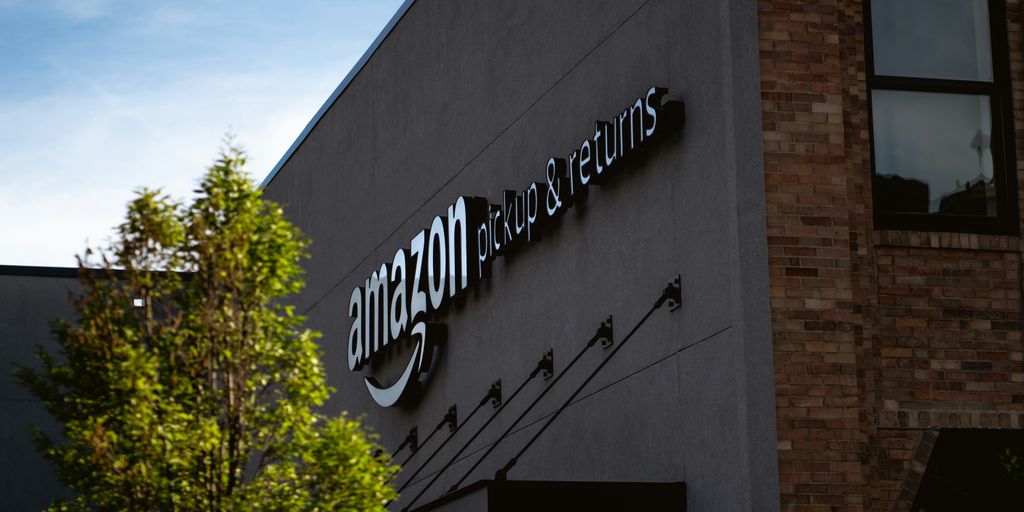The Federal Trade Commission recently cleared a hurdle in its big lawsuit against Amazon, which really got people talking about competition in online shopping. Amazon is a huge player in e-commerce, so what they do affects everyone, from shoppers to other businesses. It’s worth looking at if this case will change how things work for online marketplaces.
Key Takeaways
- The FTC’s lawsuit claims Amazon uses unfair practices that hurt smaller sellers and stop new companies from entering the market.
- This case could change how antitrust laws are applied to big online companies, going beyond just looking at prices.
- If Amazon’s practices are limited, it might help other online stores compete better and lead to more choices for shoppers.
- Amazon says its current ways of doing business actually help customers and make things more competitive.
- The lawsuit is moving forward, with a trial set for October 2026, even though some state claims were dropped.
Understanding The FTC’s Allegations Against Amazon
The FTC’s lawsuit against Amazon has really stirred things up, raising some serious questions about competition in the online marketplace. Amazon is a huge player, and its actions have a big impact on both shoppers and other businesses. The FTC thinks Amazon is using its power in ways that hurt competition. Let’s break down what the FTC is saying.
Amazon’s Alleged Anticompetitive Practices
The FTC claims Amazon uses its dominance to unfairly squeeze third-party sellers and box out potential rivals. They’re looking at a bunch of Amazon’s business practices, arguing that these actions limit consumer choice and stifle innovation. It’s not just about whether Amazon is technically a monopoly, but whether its actions are hurting the overall health of the e-commerce market. The FTC’s lawsuit stems from allegations that Amazon engages in anticompetitive practices.
Impact On Third-Party Sellers
One of the big issues is how Amazon treats the sellers who use its platform. The FTC suggests that Amazon uses coercive tactics that put these sellers at a disadvantage. This could include things like forcing sellers to use Amazon’s fulfillment services or penalizing them if they offer lower prices on other sites. If the FTC is right, these practices could be making it harder for small businesses to compete and offer the best deals to consumers.
Barriers To Entry For New Competitors
The FTC also argues that Amazon’s actions create significant barriers for new companies trying to enter the e-commerce market. Because Amazon is so big and has so much control over the online marketplace, it can be tough for new players to gain traction. This lack of competition could lead to less innovation and higher prices for consumers in the long run. If the lawsuit successfully restricts Amazon’s anti-competitive practices, it may level the playing field for other marketplaces.
Implications For Antitrust Law

Redefining Monopolistic Practices In Digital Markets
This lawsuit could really change how we think about monopolies, especially when it comes to online businesses. Traditionally, antitrust laws focused on things like pricing. Now, the FTC is looking at how Amazon’s actions affect things like who gets access to the market and whether companies can even try to come up with new ideas. If the FTC wins, it could mean regulators start looking at a much wider range of factors when deciding if a company is acting unfairly. It’s not just about prices anymore; it’s about how a company’s power affects the whole market.
Setting Precedent For Online Platforms
What happens in this case could set a standard for how other online platforms are treated. If Amazon loses, other companies might have to be more careful about how they do business. This could lead to more scrutiny of online platforms and how they use their power. On the other hand, if Amazon wins, it might encourage big platforms to be even more aggressive, knowing they can get away with more. Either way, the outcome will definitely have a big impact on the digital marketplace.
Broader Reevaluation Of Antitrust Principles
This case might make us rethink some of the basic ideas behind antitrust law. For example, how do we define "market power" in the age of tech? Is it just about size, or does it also include things like control over data or access to customers? Regulators might start focusing on how a company’s dominance affects not just prices, but also innovation and market access. It’s a big question, and this lawsuit could push us to come up with some new answers. The FTC Act is being tested in a new way.
Potential Effects On Amazon’s Competitors
Leveling The Playing Field For Marketplaces
If the FTC is successful, it could really shake things up for Amazon’s competitors. Think about it: companies like Walmart, eBay, and even Shopify have been trying to gain ground, but it’s tough when you’re up against a giant. This lawsuit could restrict Amazon’s alleged anticompetitive practices, potentially giving other marketplaces a fairer shot. It might help them attract more sellers and customers, which is exactly what they need to grow. It’s like finally getting a chance to play on a level field.
Encouraging Innovation In E-Commerce
A more competitive environment usually means more innovation. If Amazon has to play by different rules, other companies might feel more confident investing in new ideas and technologies. This could lead to some cool new features, better services, and maybe even entirely new ways of shopping online. It’s all about pushing the boundaries and trying to [offer their products](#f237] in a way that stands out. The e-commerce world could become a lot more interesting if everyone feels like they have a real chance to compete.
Benefits For Consumers Through Lower Prices
Ultimately, all this competition could be great for us, the consumers. If Amazon’s pricing strategies are reined in, other companies might be able to offer lower prices and better deals. This could lead to a price war, which is always good news for shoppers. Plus, companies might start focusing more on customer service and overall experience to win us over. It’s a win-win: we get better prices and better service. It’s like the stores are actually trying to impress us, imagine that!
The Lawsuit’s Journey Through The Courts
Surviving The Motion To Dismiss
So, the FTC’s lawsuit against Amazon? It’s actually made it past the first hurdle. Amazon tried to get the case thrown out early on, but the court said, "Nope, there’s enough here to keep going." This is a big deal because it means the court thinks the FTC has presented a plausible case that Amazon might be engaging in antitrust litigation. It doesn’t mean Amazon is guilty, but it does mean they have to actually defend themselves in court. This initial win for the FTC sets the stage for a potentially long and complicated legal battle.
State Law Claims And Their Dismissal
Interestingly, not all of the FTC’s claims survived. A few of the claims that were based on state laws got dismissed. This often happens in complex cases like this, where different laws and jurisdictions are involved. It’s not uncommon for some parts of a lawsuit to get tossed out while others move forward. The court probably felt that those particular state law claims didn’t quite fit or weren’t strong enough to proceed. However, the core of the FTC’s case, based on federal antitrust laws, is still very much alive.
Anticipated Trial Schedule
Okay, so when is all of this actually going to happen? Well, as of right now, the trial is scheduled for October 2026. That’s a long way off, I know! These kinds of complex antitrust cases can take a really long time to prepare for. Both sides need to gather evidence, interview witnesses, and build their legal strategies. Plus, there are often delays and postponements along the way. So, while October 2026 is the current target, it’s definitely subject to change. Buckle up, because this legal drama is going to unfold over quite a while.
Amazon’s Defense And Counterarguments
Claimed Benefits For Consumers
Amazon has consistently argued that its practices, far from being anticompetitive, actually benefit consumers. They point to things like low prices, fast shipping, and a huge selection of products as direct results of their business model. Amazon claims these benefits are a direct result of their scale and efficiency, which allows them to pass savings on to shoppers. It’s a pretty straightforward argument: happy customers mean a healthy business, and they believe they’re delivering on that.
Promoting Competition Through Current Practices
Amazon also argues that it promotes competition. The idea is that by providing a platform for millions of sellers, they’re creating a dynamic marketplace where businesses can reach a massive audience. They suggest that the ease of selling on Amazon online marketplace encourages entrepreneurship and allows smaller businesses to compete with larger, more established brands. It’s like saying, "We’re not stifling competition, we’re enabling it!"
Denial Of Anticompetitive Allegations
Of course, Amazon flatly denies that it engages in any anticompetitive behavior. They argue that the FTC’s claims are based on a misunderstanding of how e-commerce works and that the practices being challenged are standard business practices. They’ve presented data and arguments to show that their policies are not designed to harm competitors or limit consumer choice. It’s a classic case of "we didn’t do it" – and they’re prepared to fight it out in court. They believe the FTC’s lawsuit survived a motion to dismiss based on flimsy evidence and a flawed understanding of the market. They are ready to present their side of the story and demonstrate that their actions are pro-consumer and pro-competitive. They also point out that many of the FTC’s claims are based on novel interpretations of antitrust law, which could have far-reaching implications for the entire tech industry. They are essentially saying that the FTC is trying to change the rules of the game in the middle of the game.
The Role Of Regulatory Bodies In Digital Markets

Increased Scrutiny Of Online Platforms
It feels like every day there’s a new story about some tech giant under investigation. Regulatory bodies are definitely paying closer attention to online platforms. This increased scrutiny is driven by concerns about data privacy, market dominance, and the potential for anticompetitive behavior. It’s not just about punishing bad actors, but also about setting clear rules of the road for the digital economy. This can involve everything from data protection laws to antitrust investigations. It’s a complex landscape, and regulators are working to keep up with the rapid pace of technological change.
Defining Market Power In The Tech Era
What does it even mean to have "market power" in the age of the internet? It’s not as simple as just looking at market share anymore. You have to consider things like network effects, data advantages, and the ability to control access to key platforms. For example, is Amazon’s dominance in online retail digital antitrust regulation a sign of healthy competition or a sign of something more sinister? Regulators are grappling with these questions as they try to apply old laws to new business models. It’s a challenge, but it’s essential for ensuring a fair and competitive digital marketplace. Here are some factors regulators consider:
- Market share and concentration
- Barriers to entry for new competitors
- The presence of network effects
- Control over essential data or infrastructure
Enforcement Efforts Against Dominant Positions
So, what happens when regulators find evidence of anticompetitive behavior? Well, that’s when the enforcement efforts kick in. This can range from fines and penalties to court orders that force companies to change their business practices. The FTC’s lawsuit against Amazon is a prime example of this. The goal is to deter anticompetitive behavior and promote a more level playing field for all players in the market. It’s a long and often complicated process, but it’s a necessary one for protecting consumers and fostering innovation. The court dismissed some state law claims, but the trial is scheduled for October 2026. Here’s a quick rundown of potential enforcement actions:
- Fines and penalties
- Court orders to change business practices
- Structural remedies, such as breaking up a company
What This Means for Everyone
So, what’s the big takeaway from all this Amazon lawsuit stuff? Well, it’s a pretty big deal for how online shopping works. If the FTC wins, we might see more choices and maybe even better prices when we shop online. It could also mean that other big companies get looked at more closely, which is interesting. But if Amazon wins, things might just stay the same, and big companies could keep doing what they’re doing without much worry. Either way, this case is going to shape how we buy things and how companies compete for a long time. It’s definitely something to keep an eye on.
Frequently Asked Questions
What is the main idea behind the FTC’s lawsuit against Amazon?
The FTC’s lawsuit says Amazon uses unfair methods to stop other businesses from competing, making it harder for new sellers to join the market. They also claim Amazon charges sellers too much and makes it expensive for them to sell their goods anywhere else.
How might this lawsuit change things for Amazon’s rivals?
If the FTC wins, it could make things more fair for other online stores like Walmart and eBay. It might also lead to lower prices and better service for shoppers, as companies try harder to win over customers.
What big changes could this lawsuit bring to antitrust laws?
This case could change how we think about big companies in the digital world. It might mean that laws against monopolies will look at more than just prices, also considering how easy it is for new businesses to enter the market and how much choice customers have.
What is Amazon’s side of the story?
Amazon says its ways of doing business actually help customers and encourage competition. They deny doing anything wrong and believe their actions are good for everyone.
What’s the current status of the lawsuit in court?
The lawsuit is still going on. A judge decided to let most of the case continue, even though some parts about state laws were dropped. The actual trial is expected to happen in October 2026.
What does this lawsuit mean for how the government watches online businesses?
This case shows that government groups are watching big online companies more closely. They want to figure out how much power these companies have and make sure they don’t use it to hurt competition.












